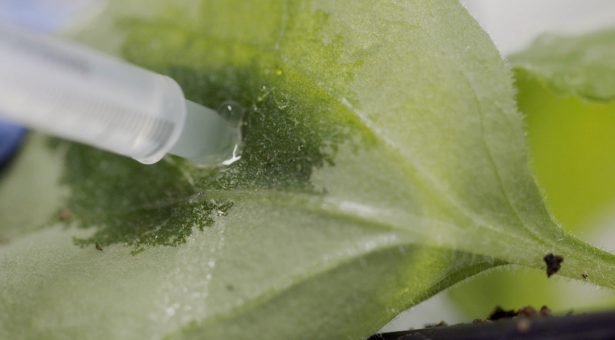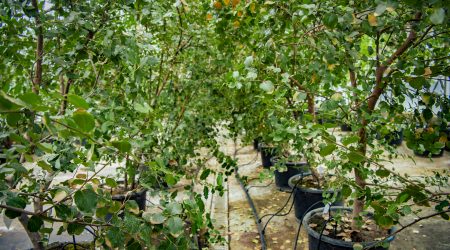John Innes Centre researchers awarded slice of £10million Government funds for vaccines development

A collaborative research team has been awarded a share of UK Government funding for research into vaccines to combat potential epidemics in developing countries.
The award of nearly £500,000 to the group led by John Innes Centre virologist Professor George Lomonossoff will fund an innovative project that aims to tackle the problem of how RNA-based vaccines can be delivered to developing countries where refrigeration to low temperatures is difficult or impossible.
The project includes fellow Norwich Research Park company Leaf Expression Systems and the University of Leeds and is one of 22 research projects funded by the Government’s UK Vaccine Network (UKVN) and administered by Innovate UK.
The research projects will help tackle diseases which primarily affect lower income countries, including. viruses such as Ebola, Lassa Fever and Zika.
Professor Lomonossoff said: “We are delighted that our project has been awarded this timely and much needed funding. The current Covid-19 pandemic has highlighted the need to protect populations from emerging disease threats. One method of achieving this is through RNA vaccines which are designed to stimulate immunity within the body.”
“The major drawback of the approach, particularly in less developed regions of the world, is that RNA is inherently unstable, and vaccines based on it must be stored and distributed at low temperature. There is therefore a need to develop alternative methods for stabilising RNA molecules. Our technology provides an efficient means of storing and distributing RNA vaccines in low-and middle-income countries.”
The John Innes Centre-led team will build on pioneering technology developed by Professor Lomonossoff’s group which uses Virus-Like Particles, authentic mimics of a real virus, to stimulate an immune response. These VLPs are expressed in plants to create valuable pharmaceutical products such as vaccines safely and inexpensively.
The project, which begins in April 2022, will investigate how RNA molecules for vaccine use can be stabilised inside VLPs and then delivered to mammalian cells. The project aims to establish this approach as a way of addressing a range of diseases and provide a rapid response to emerging threats.
In addition to known and emerging threats some of the projects announced by the UK government are also looking at ways to tackle ‘Disease X’ – a hypothetical future pathogen – to ensure the world is equipped for future epidemics or pandemics.
The UKVN has funded 78 projects with over £115 million worth of UK aid funding, as part of the government’s commitment to defeat poverty, tackle instability and create prosperity in developing countries.
Health and Social Care Secretary Sajid Javid said: “COVID-19 has shown us first-hand just how important it is that we work together to keep everyone across the world safe.
“I am delighted that these innovative projects – tackling serious and deadly diseases – will receive the funding they need to take their research to the next stage.
“Thank you to the expert scientists behind these vital projects for their efforts that will continue to save millions of lives.”

